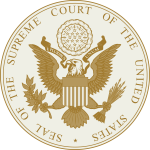Can an advisor be held liable for the false statements in a prospectus made by another?
Previously we blogged about a pending case before the Supreme Court that had the possibility to significantly increase the liability of persons for assisting in the preparation of a “prospectus.” As of June 13, 2011, the Supreme Court handed down an opinion in that case, styled as Janus Capital Group, Inc. v. First Derivative Traders, No. 09-525 (S. Ct.).
The determination of this case is relevant to accountants and business lawyers who assist in the preparation of documents for the purpose of raising money for investment. The Janus Capital Group, Inc. case presented the question of who may be deemed to have “made” an untrue statement for the purposes of Rule 10b-5, and specifically whether someone who assisted in the preparation of a prospectus could “make” a statement through such assistance. As the result of a 5-4 decision, accountants and business attorneys may breathe a little easier.
Background information.
A prospectus means “any prospectus, notice, circular, advertisement, letter, or communication, written or by radio or television, which offers any security for sale or confirms the sale of any security.” 15 U.S.C. 77b(10). Among other things usually thought of as a security, a security includes an “investment contract.” “An investment contract for purposes of the Securities Act means a contract, transaction or scheme whereby a person [1] invests his money [2] in a common enterprise and [3] is led to expect profits [4] solely from the efforts of the promoter or third party.” SEC v. W. J. Howey Co., 326 U.S. 293 (1946).
Liability under Section 10(b) of the Securities and Exchange Act of 1934 may result from a violation of Rule 10(b)(5) issued by the Securities and Exchange Commission for any statement deemed to be fraudulent in connection with the purchase or sale of a security, as follows:
It shall be unlawful for any person, directly or indirectly, by the use of any means or instrumentality of interstate commerce, or of the mails or of any facility of any national securities exchange, … (b) To make any untrue statement of a material fact or to omit to state a material fact necessary in order to make the statements made, in the light of the circumstances under which they were made, not misleading, … in connection with the purchase or sale of any security.”
Thus, anyone who assists in raising money to start a company or other business venture, whether from “angels,” “friends and family,” or investment professionals, should be aware of potential liability under the securities acts, state and federal, and particularly under Rule 10b-5 for false or misleading statements made in connection with the investment.
The Supreme Court previously commented in dicta in Central Bank of Denver, N.A. that, “Any person or entity, including a lawyer, accountant, or bank, who employs a manipulative device or makes a material misstatement (or omission) on which a purchaser or seller of securities relies may be liable as a primary violator under 10b-5, assuming all of the requirements for primary liability under 10b-5 are met.” Indeed, lower courts have upheld such direct liability.
Supreme Court Decision.
The Supreme Court’s opinion announced in Janus Capital Group, Inc. sets out the following rule as to direct liability under Rule 10b-5:
For purposes of Rule 10-5, the maker of a statement is the person or entity with the ultimate authority over the statement, including its content and whether and how to communicate it. Without control, a person or entity can merely suggest what to say, not “make” a statement in its own right. One who prepares or publishes a statement on behalf of another is not its maker.
Obviously, a 5-4 decision indicates a clear split on the Supreme Court. Therefore, accountants, lawyers, investment advisors, etc. may want to continue to exercise some caution when preparing documents for the purpose of raising money for investment.
Tarley Robinson, PLC, Attorneys and Counsellors at Law
Williamsburg, Virginia



